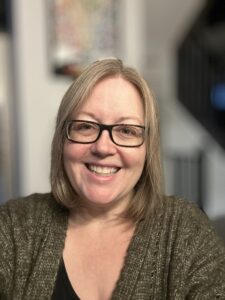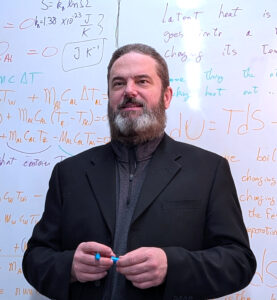Micro schools offer a sense of belonging and personalized, relationship-based education

Long before the micro school became a trend in education, Académie de la Capitale was already putting its principles into practice.
Since its founding in 1998, the administration and faculty at Académie de la Capitale (AcadeCap) have prioritized recognizing students’ strengths and exceptionalities, offering a personalized, relationship-based approach to education. The school’s small class sizes and low student-teacher ratio have helped create the conditions for personal growth, learning to learn, and academic achievement.
“It’s something we’ve always done,” says AcadeCap’s founding director, Lucie Lalonde. “The label may be new, but the heart of our approach—putting students first in a supportive, future-ready environment—has always been central to who we are.”
The result?
“Confident, capable individuals ready to question, learn, act and succeed,” says Lalonde.

Lucie Lalonde. Photo Courtesy AcadeCap
More than two decades later, both research and parents are recognizing what AcadeCap has known all along: that bilingual learning, small group instruction, personalized attention and meaningful collaboration across age groups are all keys to student success.
With typically fewer than 70 students across all grades, a micro school is a small, close-knit learning community, says Lalonde. “Think of it as a modern version of the one-room schoolhouse, but reimagined for today’s world,” she says.
At AcadeCap, learning – the school combines internationally recognized programs like the International Baccalaureate Primary Years Programme (IB PYP), the Pre-Secondary School Programme (PSSP) and the Ontario Secondary School Diploma (OSSD) deepened by AcadeCap’s own future-focused curriculum – takes place in a bright, open-concept environment with smaller rooms for focused work, where students of different ages collaborate in class projects, clubs, and daily routines. Lalonde notes that this connection across age groups is rare in traditional schools. “This helps build empathy, leadership, and lasting friendships.”
This is just a few of the ways that micro schools are changing the way learning happens.
“Children need more than just textbook knowledge,” says Kara Jenkins, AcadeCap’s school and admissions administrator. Micro schools like AcadeCap focus on nurturing curiosity, confidence, collaboration, problem-solving and creativity. “Their small size,” says Jenkins of micro schools, “allows for tailored teaching, stronger student-teacher relationships, and a true sense of belonging. Many parents tell us their children blossomed academically and emotionally after joining our community.”

Kara Jenkins. Photo Courtesy AcadeCap
AcadeCap “prepares students for real life, not just tests,” says Dr. Bruno Riel, AcadeCap’s academic advisor. “We teach them how to think critically, solve problems with others, communicate clearly, and understand themselves and others. These competencies and skills are built into everything we do, from science experiments to art projects. It’s not about memorizing more facts, it’s about learning how to learn, and why learning matters. We want students to leave not just knowledgeable, but capable and ready to act. It’s not just about academic excellence.”

Bruno Riel. Photo Courtesy AcadeCap
For these reasons, both gifted children and children who aren’t thriving in more traditional settings do well at micro schools. “We work with each student to help them discover how they learn best,” says Jenkins. “Students feel safe to take risks, ask questions and grow at their own pace.”
Although some parents worry that a smaller school means fewer resources or limited social experiences, AcadeCap has facilities for science, music, art and even a martial arts dojo.
“Our programming is rich and varied – model United Nations, iSTEAM challenges, nature hikes and student-led trips across the country,” says Jenkins. Riel adds, “our students learn to manage their time, lead initiatives, and communicate across differences, skills they’ll carry into university, career, and life.”
-30-

Building lifelong relationships
The sense of community doesn’t end at graduation from AcadeCap, says Lucie Lalonde. “It’s something students carry for life.”
Lalonde says that many alumni come back to mentor, volunteer, or run the school’s summer camp programs.
“Past students and parents regularly drop by just to visit,” says Lalonde. “They connect on social platforms from across the world. The bonds formed here, with teachers and peers, are deep and lasting.”
 Did you know?
Did you know?
There are currently more than 100 micro schools – and counting – across Canada.
“Micro schools prepare students for the real world better than most traditional schools. Life isn’t divided by age or driven by standardized tests. It’s about working with diverse people, solving real problems and adapting to change.” — Dr. Bruno Riel


